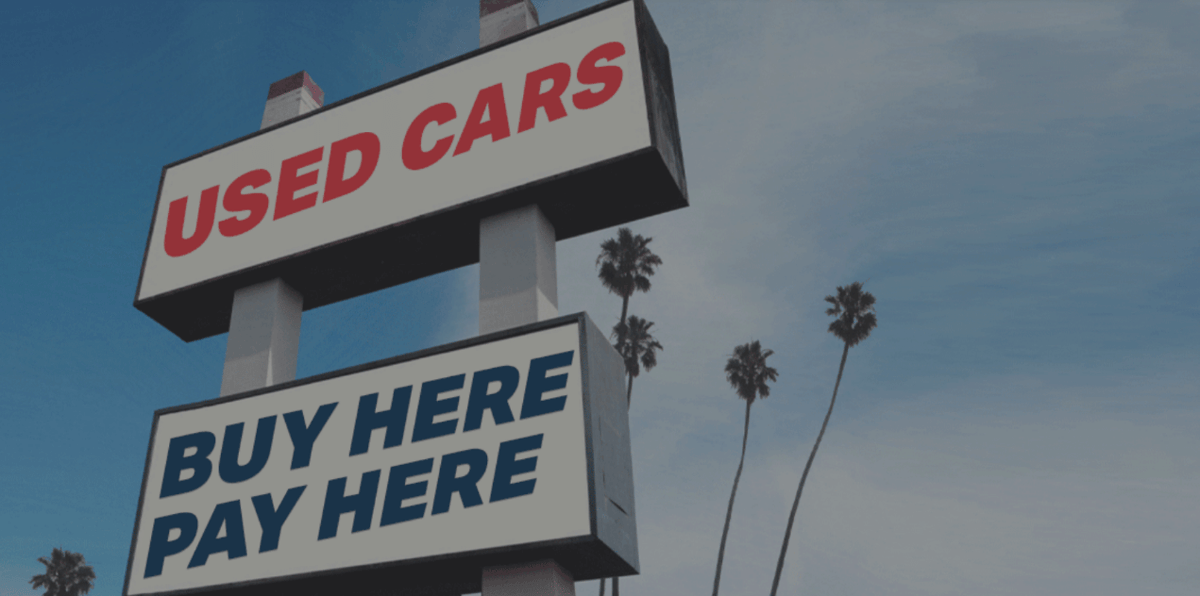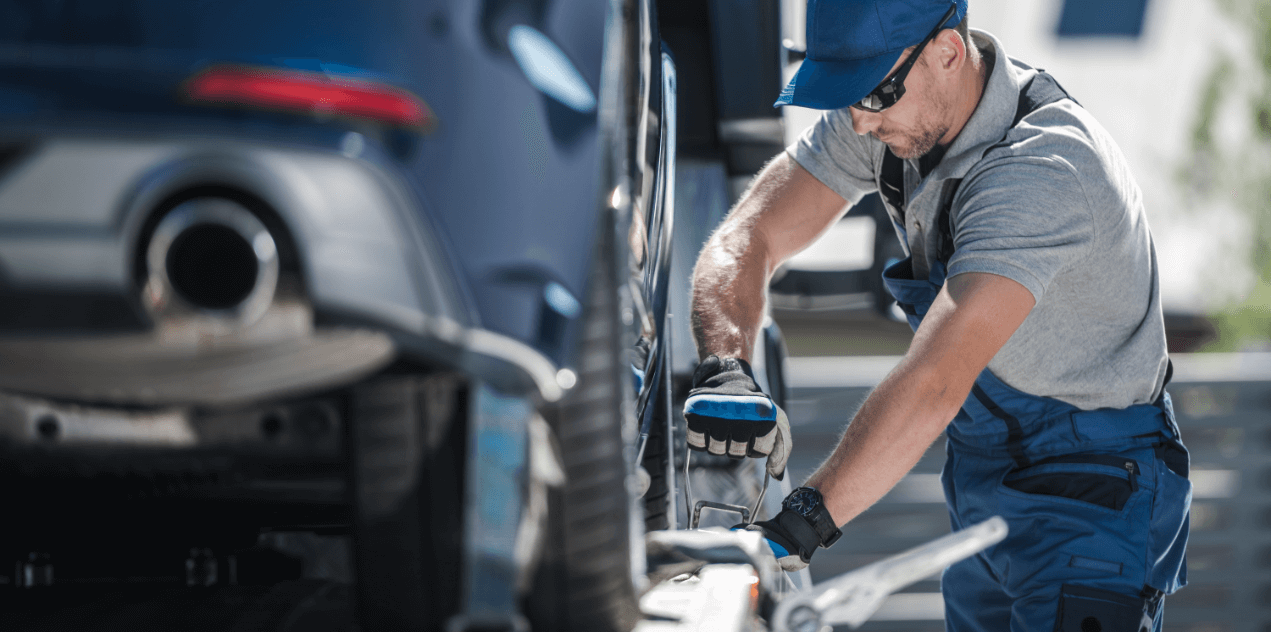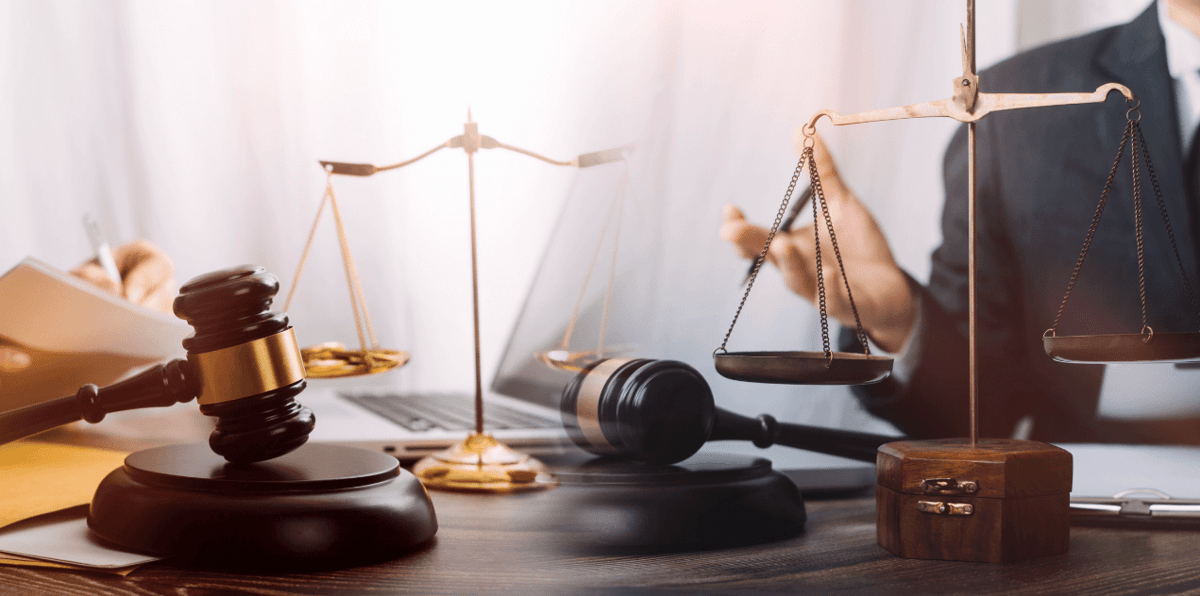Stay Updated With Us
Follow our blog and media to see the latest trends, tips, and disrupters in automotive
This guide is written for used car dealers who are researching buy here pay here (BHPH) repossession laws they need be aware of to run their dealership. We’ve kept the guide high level and simple for a general audience.
Buy here pay here (BHPH) repossessions are increasing rapidly as a result of the pandemic. These dealerships provide lines of credit for consumers who have subpar credit, which leads to repossessions (voluntary or involuntary). Most of these dealerships have high-interest rates associated with the risk of lending. When an economic crisis hits, these dealerships always excel.
While BHPH laws vary from state to state, we're going to take you through the national laws you need to be aware of and how they can impact your transactions.

A buy here pay here dealership is an automotive dealership that offers its own line of credit to people who have subpar credit or no credit. These dealerships extend lines of their own instead of working with banks and credit unions. This makes it easier for the dealerships to provide loans to virtually anyone who walks through the door.
While BHPH dealerships are enticing to those who can't get approval from a bank, there is a catch. BHPH dealerships often have their own overhead costs and loans that need to be paid off, too. This pressure gets pushed onto the customer in the form of higher interest rates, increased chances of repossession, and less flexibility when payments are missed.

A BHPH repossession is similar to a repossession from any creditor. If payments are not made on vehicles purchased from BHPH dealerships, repossessions will happen.
In fact, repossessions can happen on the same day as a repossession is commissioned, as a large part of how BHPH dealerships operate depends on frequent, quick repossession. That said, some BHPH dealerships will allow clients to voluntarily turn in the vehicle.
Still, BHPH repossessions are often the worst-case scenario, so understanding the laws surrounding what you can and can't do is important.

There are multiple laws and acts that were created to regulate the BHPH industry. Many of these laws are important to understand, so we're going to take you through the major laws that apply on a national scale.
The Truth in Lending Act (TILA) of 1968 applies to most types of loans and applies to BHPH loans. The part of the act that applies to BHPH law is Regulation Z. Regulation Z requires specific information to be written in a written contract before any money lending occurs.
The information Regulation Z requires is as follows:
It must be disclosed that the lender has retained all (or portions) of the amount of money charged to you
Dealers must give you an accurate cash price of the vehicle
The contract also needs to have the total amount of the loan and financing
Before you make a purchase or take out a loan with a BHPH dealership, make sure the contact has all of the required information.
The Tax Reform Act of 1986 changed the way that BHPH dealerships conduct business. BHPH dealerships used to give loans from the dealership's account, but that practice was made impossible by this act.
Because of the Tax Reform Act of 1986, BHPH dealerships had to create related finance companies (RFCs). These companies allow dealerships to keep both parts of the business separate, sidestepping the restrictions against lending directly.
That said, RFCs are not regulated by traditional standards, especially on a national level. Instead, RFC companies typically play by state laws and regulations. This typically includes grace periods, maximum interest rates, and late fee amounts. In most states, these regulations apply to RFC companies and BHPH dealerships.
In response to concerns about frequent repossessions, President Biden took action to extend the existing foreclosure moratorium until July 31, 2021. While primarily helping renters with the foreclosure and eviction moratoriums, the Biden administration also temporarily put car repossessions on hold.
While the administration was able to put these repossessions on hold, this was only able to pause the problem. Today, BHPH dealers and other creditors can repossess vehicles once again. Therefore, it's important to know the laws and how they can impact you moving forward.

The above laws discuss most BHPH regulations in detail, but there are some key points to cover that repossession agents must follow.
When someone is preparing to repossess a vehicle, they have to inform the authorities prior to doing so. This prevents complications from arising when people report their cars stolen when they were just repossessed instead, as well as ensuring that no laws are broken during the repossession.
Repossession agents don't have the right to use physical violence to repossess someone’s vehicle. They can't put their hands on a person, harm them in any way, or attack them.
Moreover, repossession agents aren't allowed to enter fenced-in parts of the property, especially if they're locked. Plus, people can ask them to leave their property and they have to accept.
Repossession agents also can't damage property. This includes other vehicles the debtor may own, their home, and other personal belongings.
That said, damage to the vehicle they're repossessing is more of a legal gray area. For more information, we recommend looking into state-specific laws.
Notice is Required
Before repossession, the dealership or lender must let the debtor know that they're going to take the vehicle. Failure to do so can result in unlawful repossession.

BHPH dealerships give customers with a poor credit history a chance to purchase a car. While there is the risk of repossession if payments are not made, many clients are happy with their vehicles and for some individuals BHPH dealerships are the only options.
That said, it's important to brush up on some of the laws that apply to these dealerships to better understand the industry. While BHPH laws vary by state, and we recommend checking the laws specific to your state, the national laws we provided cover most aspects of these dealerships and the regulation of them.
Follow our blog and media to see the latest trends, tips, and disrupters in automotive
Get expert advice on getting your CRM up-and-running fast. You don't have to be a big dealer to run your sales team like one.
© 2026 A1 Software Group Inc. All Rights Reserved.